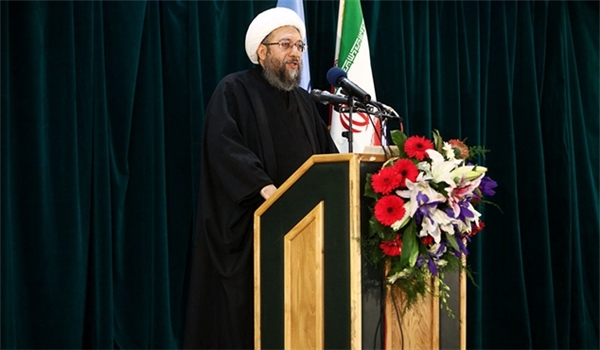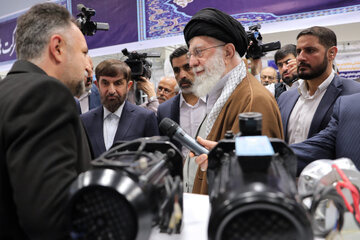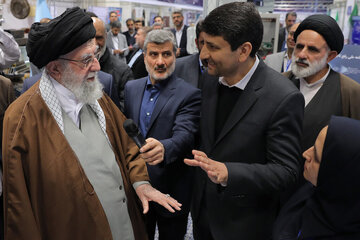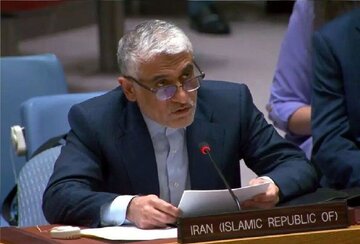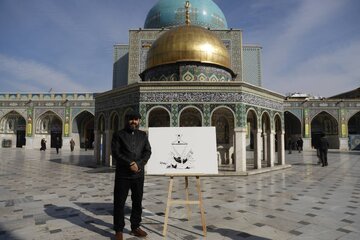"Saudi Arabia's aggression against Yemen is a very regrettable event in the Muslim world which should end as soon as possible through talks and negotiations; otherwise, this blatant aggression of a government which claims (to be leading) Islam, against the Muslim people of another country who want to decide their fate will not remain unanswered," Amoli Larijani said, addressing high-ranking judiciary officials in Tehran on Wednesday.
He expressed the hope that the Saudis would find the right path soon and stop aggression and bloodshed against the innocent Yemeni people, and said in sarcastic remarks that "when naive individual decisions are made in a country which doesn’t have the least experience of democracy, has no parliament and no elections, the result will be the aggression of a state which claims to be the leader of Islam to another Muslim nation preventing its people from exercising their right of sovereignty."
Saudi Arabia has been striking Yemen for 14 days now to restore power to fugitive president Mansour Hadi, a close ally of Riyadh. The Saudi-led aggression has so far killed at least 906 Yemenis, including hundreds of women and children.
Hadi stepped down in January and refused to reconsider the decision despite calls by Ansarullah revolutionaries of the Houthi movement.
Despite Riyadh's claims that it is bombing the positions of the Ansarullah fighters, Saudi warplanes are flattening residential areas and civilian infrastructures.
Five Persian Gulf States -- Saudi Arabia, the United Arab Emirates (UAE), Bahrain, Qatar and Kuwait -- and Egypt that are also assisted by Israel and backed by the US declared war on Yemen in a joint statement issued on March 26.
US President Barack Obama authorized the provision of logistical and intelligence support to the military operations, National Security Council Spokesperson Bernadette Meehan said late on March 25.
She added that while US forces were not taking direct military action in Yemen, Washington was establishing a Joint Planning Cell with Saudi Arabia to coordinate US military and intelligence support.
In relevant remarks today, Iranian Deputy Foreign Minister for Arab and African Affairs Hossein Amir Abdollahian underlined the necessity for an immediate halt to the Saudi military aggression against Yemen and settlement of problems in the crisis-hit country through national talks.
"The crisis (in Yemen) can be settled merely through political means, immediate halt in Saudi Arabia's military attack against Yemen and national talks in the presence of all sides in an impartial (third-party) state," Amir Abdollahian said in a meeting with China's Special Envoy on Middle-East Affairs Gong Xiaosheng in Tehran on Wednesday.
He also warned that such belligerent moves were against Saudi Arabia's regional interests and could provide the ground for the repetition of experiences in Libya and Syria, stressing that the regional countries shouldn’t become entrapped in suspicious plans and plots.
/275, 149

